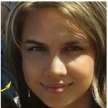
The capacity to dominate or influence others, or to accomplish a desired end, is referred to as power. Power is the capacity to make items happen in their most basic form.
Political, economic, social, and personal power are examples of diverse types of power. The capacity to make decisions and enforce laws within a government or political system is called political power. Economic power is the ability to control and influence financial resources and markets. The ability to affect people via social interactions and networks is referred to as colonial power. Personal power is defined as the capacity to direct one’s own life and decisions while positively influencing others.
Scholars and intellectuals have examined the notion of power for centuries, and there is still significant dispute over the nature and definition of power. Power is viewed as a beneficial force that may be exploited to produce positive ends by some, while it is viewed as a corrupting influence that can lead to oppression and abuse by others.
Power may be handled in various ways and in diverse forms. Some individuals and groups may use force to exert control over others and advance their goals, while others may utilize the ability to promote justice and equality.
It is crucial to highlight that power is not a static or set idea. Individuals and organizations can acquire or lose control over time depending on various circumstances, such as technological advancements, economic situations, or political events.
Power is a vast and multidimensional idea that has dominated human history. Whether perceived positively or negatively, it is a fundamental component of our social, political, and economic institutions. It will continue to impact the society we live in for future generations.
Power distribution is also a critical problem since it influences the distribution of resources and opportunities within a community. Those in positions of power frequently have access to more excellent resources and opportunities, while those without power may be excluded or marginalized.
The idea of the “power elite,” which contends that a tiny group of persons and organizations control much of the world’s power and resources, is one of several hypotheses concerning power distribution. Democratic ideas, on the other hand, contend that energy should be spread more equitably among members of society .
Regardless of the philosophy, power distribution is frequently complex, as people with power may be opposed to sharing it, while those without power may feel alienated and excluded.
The emergence of new technologies in recent years has also considerably influenced electricity distribution. Individuals and groups now have new ways to interact and organize as information and communication technology become more widely available, potentially threatening the dominance of existing institutions and organizations.
However, the implications of new technology on electricity distribution are complicated and diverse, with both positive and bad outcomes. On the one hand, new technologies may provide people and communities with new ways to challenge the authority of old institutions and organizations. Still, they may also reinforce current power structures and perpetuate inequality.
The use and distribution of power is an essential part of human relationships and interactions, and it impacts all of us. Power dynamics are present in all aspects of our life, whether conscious of them or not, from our relationships to our contacts with organizations and governments.
Individuals must be conscious of the power dynamics at work in their life and try to create more fair and just relationships and systems. This might include lobbying for policies and practices that promote justice and equality and addressing power imbalances and oppressive structures.
Furthermore, individuals must nurture their power and aspire for greater self-determination and agency. This might include honing one’s talents and abilities, establishing significant relationships and networks, and taking actions to expand one’s influence and effect in the world.
Power is a complicated idea fundamental to our lives and interactions with others. We may build a more equitable, just, and fulfilling world for everybody by being aware of the power dynamics at work and striving for greater justice, equality, and self-determination.
Finally, power is a critical problem in our society, with significant consequences for allocating resources and opportunities. The distribution and wielding of power will continue to impact our society. It is critical for individuals and communities to be aware of the consequences of power and work toward a more equal and just distribution of resources and opportunities.
About the Creator
Nedelcu Alina
Life’s short, eat the cake 🍰






Comments (2)
Your story touched me deeply, and I appreciate you taking the time to share it with all of us. I'll definitely be following your writing from now on, and can't wait to see what you have in store for us in the future.
such a powerful message